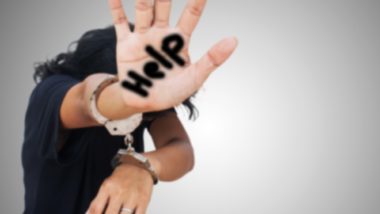Top Class Actions’s website and social media posts use affiliate links. If you make a purchase using such links, we may receive a commission, but it will not result in any additional charges to you. Please review our Affiliate Link Disclosure for more information.
Advances in artificial intelligence may lead to the use of technology to recognize and rescue victims of human trafficking.
Artificial Intelligence May Be Used to Rescue Human Trafficking Victims
Human trafficking is a worldwide, billion-dollar industry with millions of victims. Although some people may envision victims of human trafficking as living far from the United States, it is estimated that tens of thousands of victims and survivors of trafficking live in the U.S. Around 10,000 new cases of trafficking in the U.S. are reported every year, and these numbers are expected to be far fewer than the actual number of victims. Most of these victims are women, and many are minors.
While it used to be much harder, if not impossible, to locate victims of human trafficking, advances in artificial intelligence (AI) and facial recognition software may mean that finding these victims will only become easier.
Previous strategies for stopping human trafficking have focused on locating one victim at a time and freeing them from their captors, but AI may allow law enforcement to identify larger-scale criminal organizations that rely on human trafficking for profit. By switching the focus to the organizations rather than the individuals, law enforcement may be able to prevent incidents of sex trafficking before they occur, rather than attempting to locate victims after.
Several companies have created software to aid in this mission. In 2012, a student at Carnegie Mellon University founded Marinus Analytics, a company that created software called Traffic Jam to sort through publicly-available information on the internet and identify potential instances of human trafficking.
As many human traffickers use the internet to lure in potential victims or advertise their business to clients, it may be possible to use these online interactions to track down traffickers or victims. The data available online may include advertisements, photos or videos, messages, financial transactions, and more.
There are many types of software that may aid law enforcement in finding victims of human trafficking. In addition to using facial recognition programs to comb through photos and videos posted on social media and security camera footage from stores and hotels, some types of software may be able to identify the locations where photos of potential sex trafficking victims were taken. For instance, photos that include a hotel bedspread may be analyzed in order to determine which hotel chain the bedding is from. Other programs may be able to flag suspicious financial activity that could be related to laundering money obtained through the sex trafficking trade.
How Can Companies Combat Human Trafficking?

As many as 81-percent of sex trafficking victims may be housed at hotels at some point during their ordeal. Many survivors have filed lawsuits against the hotels or motels they were housed at, claiming that employees at these establishments failed to recognize the signs of exploitation, or failed to intervene.
Airbnb sites were also used, which reportedly led the company to partner with a human trafficking non-profit to train employees to recognize the signs of exploitation.
The training programs established by hotels and Airbnb may empower employees to recognize red flags for potential exploitation, as well as teaching them how and when to partner with law enforcement.
Potential signs of human trafficking that hotel employees may be able to watch for include requests for a room near the exit, excessive requests for clean linens or towels, refusal to let housekeeping enter the room, paying for a room in cash, an excessive number of male visitors visiting a lone female guest, parking vehicles so that license plates are not visible, and guests with little to no personal belongings. Female guests may seem to not have access to their own money, identification, or cell phone, and may be wearing inappropriate or ill-fitting clothing, displaying signs of poor personal hygiene, or signs of physical abuse or malnutrition. Lone female guests may also exhibit strange behavior, or appear to be being watched.
If you or a loved one has been a victim of human trafficking, you may be eligible to speak with an experienced attorney. Victims who were housed at hotels or motels may be able to file a lawsuit against the hotel or motel company that failed to intervene and prevent their abuse and exploitation.
If you were a victim of sex trafficking and forced to work at a truck stop, hotel or motel, night club or other hotel venue, you may be eligible to move forward with a civil investigation against these businesses. This investigation involves a civil case, and is not a criminal case against you or your loved ones.
Top Class Actions is working with experienced human trafficking attorneys who will be informed and sensitive to your situation. Join the fight by filling out the short form on this page.
ATTORNEY ADVERTISING
Top Class Actions is a Proud Member of the American Bar Association
LEGAL INFORMATION IS NOT LEGAL ADVICE
Top Class Actions Legal Statement
©2008 – 2024 Top Class Actions® LLC
Various Trademarks held by their respective owners
This website is not intended for viewing or usage by European Union citizens.
Get Help – It’s Free
Help for Human Trafficking Survivors
If you qualify, an attorney will contact you to discuss the details of your potential case at no charge to you.
E-mail any problems with this form to:
Questions@TopClassActions.com.












